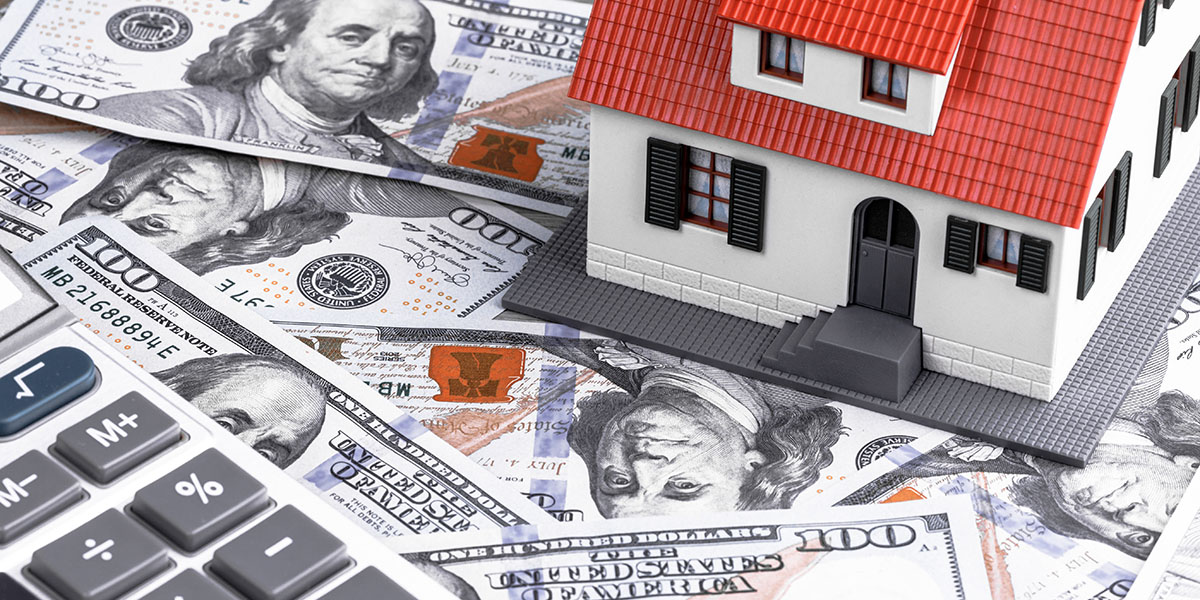What is Included in Closing Costs?
Closing Costs. It’s one of the most important questions Home Buyers want to know. “What is the total amount of money I need and when do I need it by?” It can be frustrating to the Buyer when they get different answers from different people involved in the transaction. And it adds to the confusion when those answers involve a lot of misunderstood real estate jargon. Unfortunately, there is not a quick answer to this question that applies to all Buyers. Instead, much of it will depend upon the loan-type, source of funds, timing and strategy of how best to achieve a particular Buyer’s goal of becoming a home owner.
The best thing a home buyer can do is contact the lender ASAP. The lender can answer this question with accuracy and clarity. They are the only party to the transaction who is legally obligated to accurately disclose to the Buyer, all of the costs associated with purchasing the property.

So How Much Money Do I Need at Closing?
The following is a thorough explanation of the question, “What is the total amount of money I need and when do I need it by?”
What is TCTC?
First, let’s define the term Total Cash To Close (TCTC). TCTC is the entire amount of money that the Buyer will need to deposit into escrow in order to close the transaction. The most accurate estimation of Buyer’s TCTC will come from Buyer’s Lender. TCTC consists of:
TCTC does NOT include optional Buyer-paid property inspection fees paid outside of escrow.
The Down Payment is the difference between the purchase price and the loan amount and is usually expressed as a percentage of the purchase price. For example, if the down payment is 5% on a $250,000 purchase, the loan amount will be $237,500 and the down payment will be $12,500. Typically the minimum down payment is 3.5% for FHA loans, and 3% for first-time Buyer Conventional loans. There are a number of loan programs that require very little or no Down Payment such as VA and USDA.
The Transaction Costs include all transaction services paid for by the Buyer during the purchase of a home. These costs include but are not limited to escrow fees, title fees, recording fees, notary fees, HOA transfer fees, Solar transfer fees and other miscellaneous fees. Typically, the Buyer’s Transaction Costs will add up to about 1% of the sales price of the home. The Seller has their own share of Transaction Costs. For example, Buyers do not typically pay a fee to their Realtor. All of the Realtor’s fee is typically paid for by the Seller
The Pre-Paids (also known as Recurring Closing Costs) are those costs that the Buyer is paying now, at the time of the purchase, for things that are not due until sometime into the future. The reason for this is to pre-pay or pre-fund the Buyer’s Impound Account. The Impound Account is the account held and maintained by the Buyer’s Lender after close of escrow wherein the Buyer makes monthly payments toward their property taxes and property insurance.
When the property taxes and property insurance bills become due, the lender uses the Buyer’s funds held in the Impound Account to pay those bills on the Buyer’s behalf. The Lender agrees to this arrangement provided that the Buyer pre-fund the Impound Account so that when those bills become due, the Lender has enough funds in the Impound Account to pay them. Typically, the Lender will require the Buyer to pre-pay from two to six months of property taxes and between twelve and fifteen months of property insurance premiums. These Pre-Paids will usually add up to a little more than 1% of the sales price and they can vary based on the time of year the closing occurs.
Pre-Paid Interest
Another Pre-Paid cost is pre-paid interest. The reason for pre-paid interest is that it allows the Buyer to adjust the monthly loan payment due date to the first of the month regardless of what day of the month the escrow closes. The amount of pre-paid interest collected at the close of escrow is entirely dependent upon the day of the month the escrow closes.
If the escrow closes earlier in the month, there will be higher pre-paid interest charged to the Buyer. If the escrow closes later in the month, there will be less pre-paid interest charged to the Buyer. For example, if a transaction were to close on the 6th of April, the Buyer would be required to Pre-Pay 24 days of interest at close. Or, if it were to close on the 22nd of April, the Buyer would be required to Pre-Pay only 8 days of interest at close. In both cases, the Buyer’s first monthly loan payment would be due on June 1.
Pre-paid interest can be difficult to predict but cannot be overlooked early in the planning process of buying a home. Before the Buyer has found a home, it is impossible to know what day of the month the transaction is going to close escrow. However, with careful planning between Buyer, Buyer’s Realtor and Buyer’s Lender, this piece will be well planned and understood by all.

Prorations are similar to Pre-Paids in that it involves property taxes. In the case of Prorations, the Buyer is paying for their portion of the property taxes prorated to the date of close of escrow. In a typical transaction, the Seller has already paid the current year’s property taxes. Therefore, in order to settle up with the Seller at close of escrow, the Buyer must reimburse the Seller for the portion of property taxes the Buyer will benefit from, now that the Buyer will be the new owner. This calculation is handled by the escrow company on behalf of Buyer and Seller so that both parties are being fairly charged or reimbursed as of the date of close of escrow.
The Appraisal Fee is somewhat self-explanatory but the appraisal process and how it is paid for is not as obvious. Depending on the loan program and the Lender’s policy on appraisals, the Appraisal Fee may be paid for by Lender or Borrower or it may not be required at all. In cases where it is required, the Lender orders the appraisal through an Appraisal Management Company.
The fee for the appraisal can be paid at the close of escrow with the rest of the TCTC or it can be paid for by the Buyer directly outside of escrow via a credit card. The appraisal may require a re-inspection due to property inaccessibility or appraiser required repairs to the property. The appraiser will charge a re-inspection fee that the Buyer may be required to pay unless it is negotiated that the Seller pay the fee. It is important for the Buyer to understand that the Appraisal Fee is non-refundable if the transaction does not close escrow.
Loan Fees are those fees charged by the Lender such as Origination Fee, Underwriting Fee, and Processing Fee. These Fees can also include Discount Points paid by the Buyer to the Lender in exchange for a reduced interest rate. Loan Fees will typically range from zero to 1% of the purchase price of the home. The Loan Fees can actually be less than zero, meaning that the Buyer can receive a credit from the Lender toward the Buyer’s Transaction Costs, Pre-Paids, etc. The Buyer would select a higher interest rate in return for the Lender Credit. This is a topic for another article but it is important to be aware of for Buyers with limited funds to close. A Lender Credit cannot be used toward Buyer’s down payment.

Earnest Money Deposit
When the Buyer makes an offer on a property, the Buyer will be required to write a check to the escrow/title company that will accompany the offer. This deposit is known as the Initial Deposit or more accurately, the Earnest Money Deposit (EMD). The EMD is a required piece of the offer, without it, the offer would not be a legally binding contract between Buyer and Seller. The Buyer can rest assured that the EMD is only a deposit towards the purchase and if the Seller fails to keep up their end of the bargain, the Buyer is entitled to receive a refund of the EMD. Likewise, there are provisions in the Purchase Agreement that allow the Buyer to back out of the transaction for various reasons and most of the time but not always, the Buyer will receive a refund of their EMD.
This is an in-depth topic to be explained in a separate article. For the matter at hand, the Buyer should know that the EMD goes toward the total Cash to Close. For example, if the total Cash to Close is $11,000 and the Buyer gave a $3,000 EMD at the time of the offer, then the remaining amount due will be $8,000. The EMD is customarily about 1% to 2% of the purchase price. The EMD can be, and is most often paid in the form of a personal check. However, it is vital that the Lender must have approved the funds in the bank account being used for the EMD prior to the EMD check being cut.
The remaining TCTC amount due can be paid to escrow just prior to the close of escrow. It is advisable to deposit the remaining TCTC no less than 3 days prior to the close date. In order to avoid delays due to banking hold periods on personal checks, the remaining TCTC must be deposited to escrow using a bank wire or a cashier’s check made payable to the escrow/title company. Again, the TCTC funds must come from a bank account already approved by the Lender. If gift funds are being used, it is advisable to get those funds into escrow much earlier and according to Lender’s instructions. Conversely, if funds from the sale of a current property are being used, those funds can be transferred from one escrow to another on the same day of close.
Closing Cost Concessions
When making the offer on a property, it is not uncommon for the Buyer to ask for the Seller to pay a portion or even all of the Buyer’s Transactions Costs, Pre-Paids, Prorations, Appraisal Fees, and Loan Fees as a part of the terms of the agreement to purchase the property. Most of the common loan-types will allow the Seller to pay for all of buyer’s closing costs (subject to some restrictions). However, it is never the case that the Seller can pay for Buyer’s Down Payment.
Other Closing-Cost Factors
Factors that will affect the Total Cash To Close are loan-type, Buyer’s FICO score, loan-to-value ratio, debt-to-income ratio, timing of the closing during the month, timing of the closing during the year, interest rate choice, seller concessions, and purchase price. A good Lender will compile the data quickly, present the most effective solutions, communicate with the Realtor and educate the Buyer so that transaction will not be an emotional rollercoaster ride.